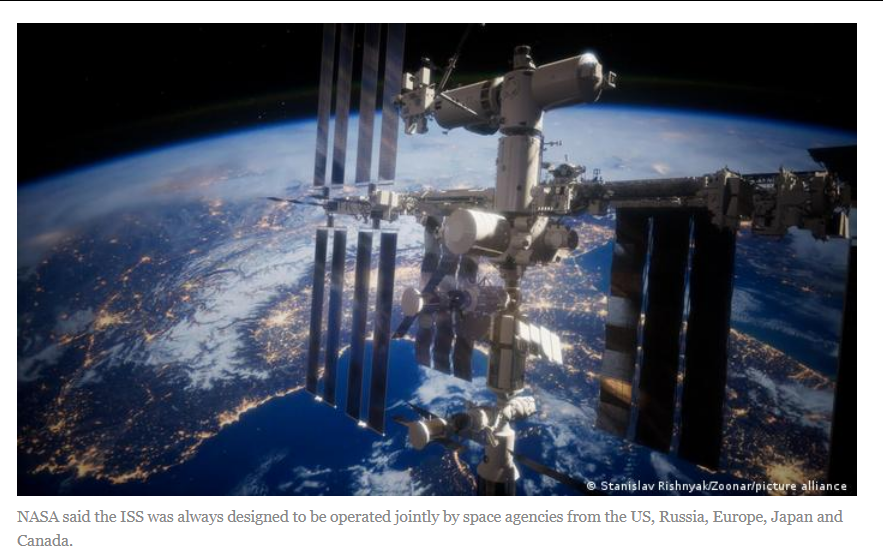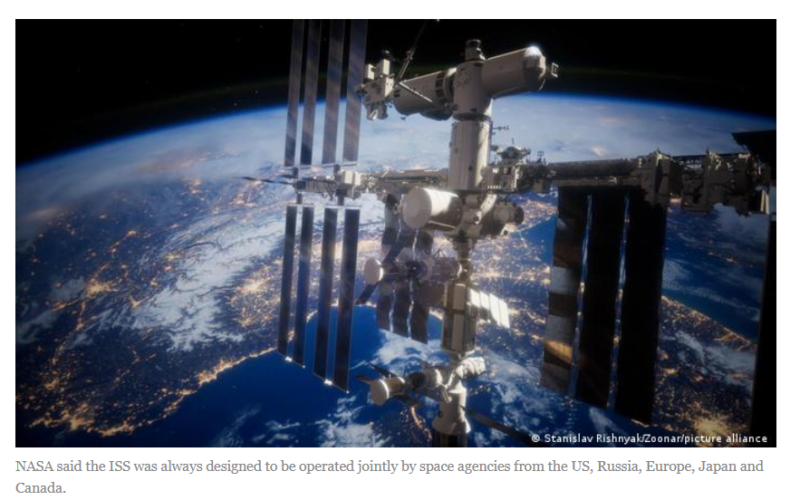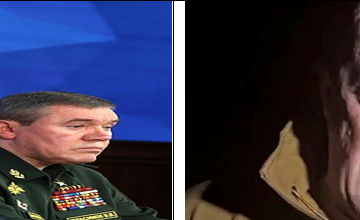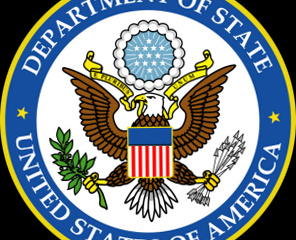
US renews space flight cooperation with Russia for ISS
Despite geopolitical tensions between the US and Russia, NASA and Roskosmos will keep using each other’s bases to send astronauts and cosmonauts to the International Space Station.
NASA said the ISS was always designed to be operated jointly by space agencies from the US, Russia, Europe, Japan and Canada.
Russia and the United States reached a deal on Friday to resume shared flights to the International Space Station (ISS) as Washington and Moscow faceoff over the war in Ukraine.
“To ensure continued safe operations of the International Space Station, protect the lives of astronauts and ensure continuous US presence in space, NASA will resume integrated crews on US crew spacecraft and the Russian Soyuz,” US space agency NASA said in a statement.
Under the deal, US astronauts will travel on Russia’s Soyuz spacecraft and Russian cosmonauts will get to ride on SpaceX rockets launched from Florida.
“The agreement is in line with the interests of Russia and the US,” Russian space agency Roscosmos also said.
NASA confirmed that the first astronauts to be hosted on so-called “cross flights” would be Francisco Rubion from the US, set to launch from the Baikonur Cosmodrome in Kazakhstan in September, and Russian cosmonaut Anna Kikina, who will take off from Cape Canaveral in the same month.
The US space agency stressed that the ISS was designed to be operated jointly with participation from the space agencies of the United States, Russia, Europe, Japan and Canada.
“No one agency has the capability to function independent of the others,” it added.
The bilateral agreement comes despite the announcement by the European Space Agency (ESA) earlier this week that it was ending its relationship with Russia on a mission to put a rover on Mars.
Russian space program chief Dmitry Rogozin, an ardent backer of the war in Ukraine, was angered by the ESA statement. He responded to it by banning cosmonauts on the ISS from using a Europe-made robotic arm.
But hours before the NASA partnership was announced, Rogozin was dismissed from his post with no explanation.
Rogozin, known for his controversial statements and strong ties to Putin, had held the job since 2018. It was not clear if his sacking was related to the rare display in cooperation between the US and Russia.
Critics had described him as an outsider who lacked the necessary education and expertise to head Roscosmos when he got the job.
He has been on a list of US sanctions since in 2014, when Moscow annexed Crimea from Ukraine.




